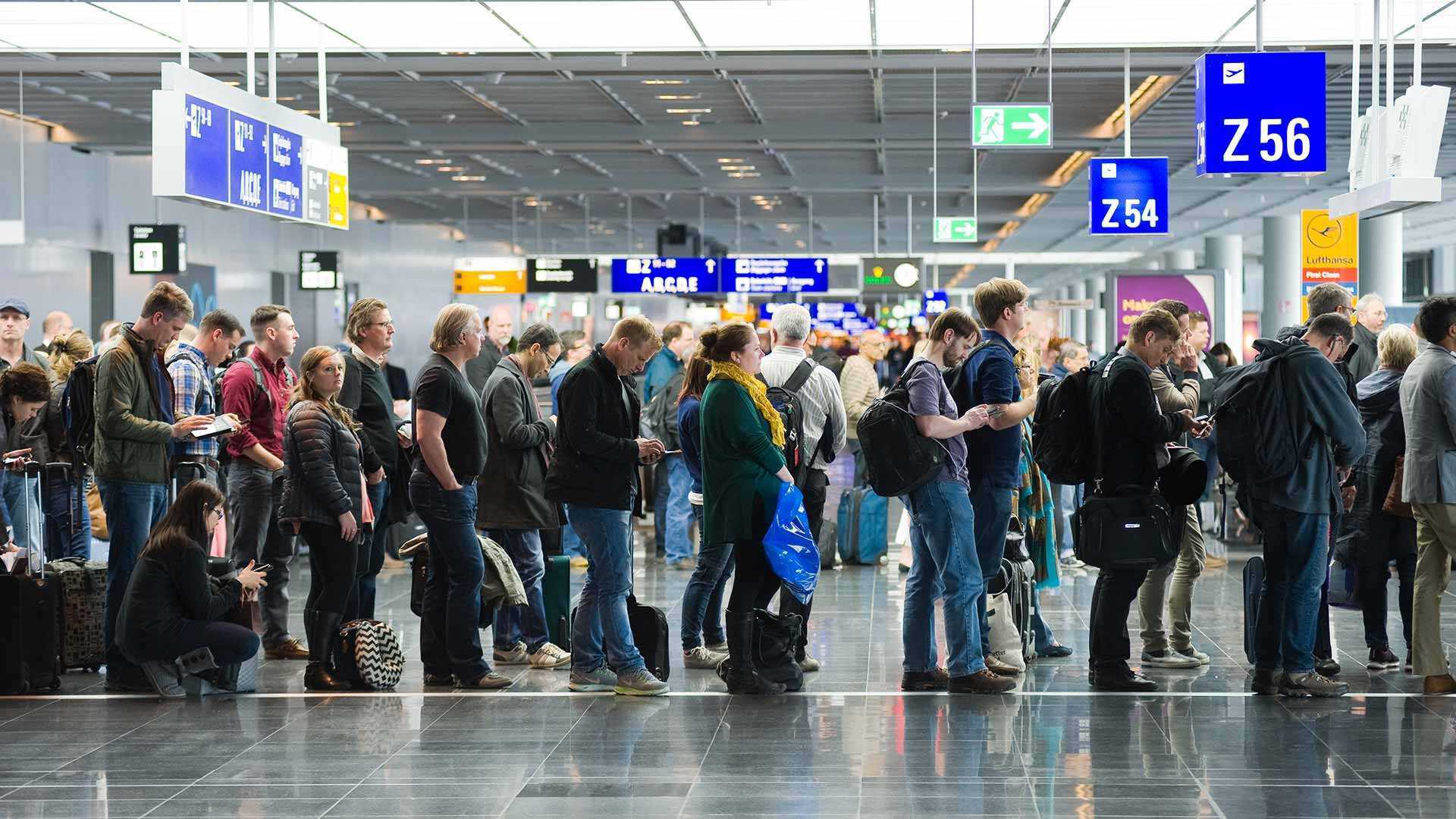- November 21, 2022
- By Gregory Muraski
According to AAA projections, Thanksgiving weekend travel will hit 98% of pre-pandemic volume this year, including 4.5 million people taking to the air. But a return to before-times airport crowds doesn’t mean well-worn 2019-era travel strategies like reserving parking in advance or allocating extra time for TSA lines will suffice these days.
With staffing shortages and other difficulties roiling the already complaint-ridden airline industry, holiday passengers need to think preemptively about yet another variable as travel demand soars over the coming days: customer service mayhem.
And those meltdowns can be more than just an inconvenience—potentially knocking your entire trip out of the sky, a University of Maryland expert said. Given labor shortages and high demand, flight cancellations are the most common COVID-era airline errors, followed by delayed or rerouted flights and lost and damaged luggage, said Roland Rust, executive director of the Robert H. Smith School of Business’ Center for Excellence in Service.
The U.S. Department of Transportation recently reported complaints against airlines had surged 322% between August 2019 and August 2022, and revealed last week that carriers have refunded more than $600 million to hundreds of thousands of consumers for canceled or changed flights. Earlier this fall, the federal government levied fines of $7.25 million against six airlines for “extreme delays” in providing those refunds. (The department’s airline customer service dashboard can help consumers determine what they are owed for such snafus.)
Smith’s Martin Dresner, professor and chair of the Department of Logistics, Business and Public Policy and chair of the Air Transport Research Society, offers a few more tips to help travelers reach their destinations:
- If you’ve got miles or membership in an airline’s status program, use them. The higher level of service such programs can afford just might make a difference.
- If you have a choice, travel in the morning. Delays build up and propagate as the day proceeds, meaning that both the probability of encountering a delay and length of time you’ll cool your heels keep increasing the later it gets.
- Rescheduling by standing in line should be your final option, not your first. Call the service line instead. (Or as one savvy traveler advised, cover your bases by calling while standing in line.)
- Use online forms or websites offered by airlines to register complaints or claim credits rather than waste time on the phone talking to a distracted customer service agent,.
- Consider booking reservations directly with airlines. If travel is booked through an agency or independent website, the airline may not deal with some problems directly, but may ask you to fix the problems with the company you used to purchase tickets.
- Do online research of airlines to avoid those with poor cancellation records.
- Don’t push your luck by trying to minimize your connection time.
Finally, Rust advised, “Avoid known problem airports (e.g., Newark Liberty International), and when possible, schedule the long flight first, rather than taking a short flight that connects to the longer flight. This is especially important for trans-oceanic trips.” And if you’re headed to Paris for a holiday getaway, wouldn’t you rather do a layover in London than Newark anyway?
